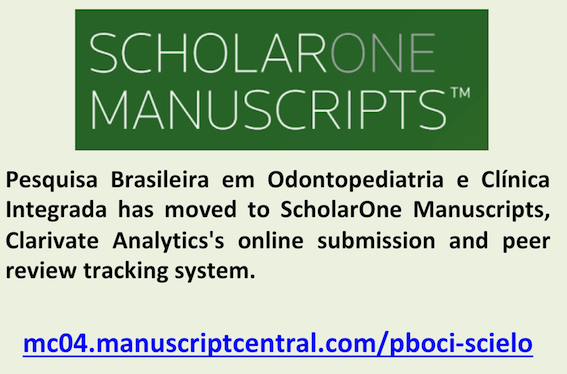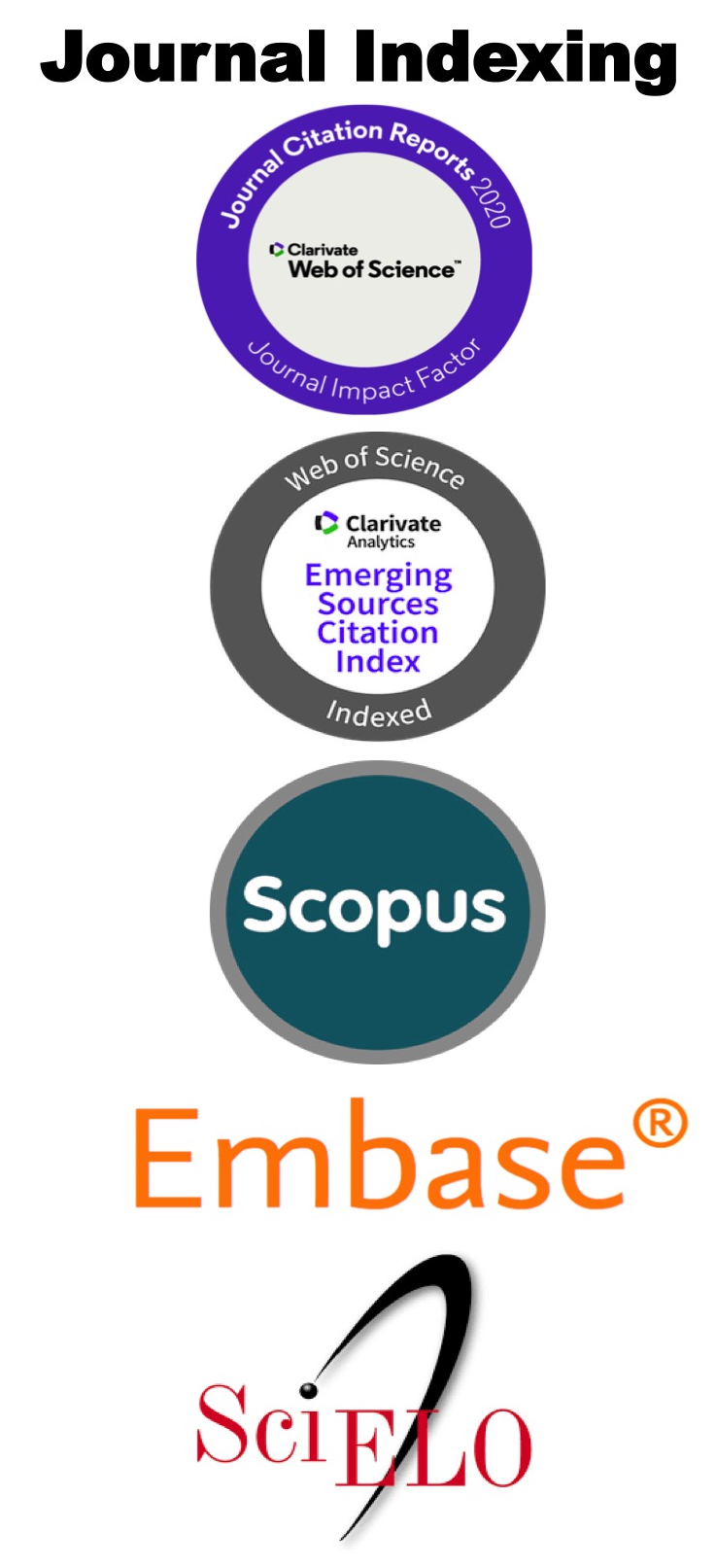Validation and Assessment of COVID-19 Peritraumatic Distress Index among Indian Dental Professionals
Keywords:
Pandemics, Coronavirus Infections, SARS-CoV-2, Health Personnel, DentistsAbstract
Objective: To establish the validity of COVID-19 Peritraumatic Distress Index (CPDI) questionnaire and assess the stress with its associated factors during COVID-19 among dental professionals in Bhubaneswar, India. Material and Methods: An online survey through Google Forms was steered among 234 dentists. CPDI questionnaire was used for data collection post its validation assessment. Content validity was judged satisfactory by two psychiatrists, and excellent internal consistency was found (Cronbach’s alpha = 0.92). For statistical analysis, chi-square and binomial logistic regression tests were used with a significance level of p≤0.05. Results: 70 (29.9%) were males and 164 (70.1%) were females with a mean age of 30.58 ± 6.70 years. Around 50% had an MDS degree and were attached to an institution and nearly 80% were having experience of less than 10 years. The mean CPDI score was found to be 29.09 ± 15.47. A statistically significant association was observed between CPDI scores with age (p<0.003), gender (p<0.03), practice (p<0.06) and education (p<0.006). Binomial logistic regression revealed that odds of stress were 2 times higher among males than females (OR=2.01, p<0.04), which was statistically significant. Conclusion: Acceptable validation scores confirmed CPDI as an effective instrument for detecting stress. Importance of early interventions to combat the issue of stress among dental professionals as it is allied with negative consequences on health and furthermore affects daily activities is highlighted.
References
World Health Organization. Coronavirus disease (COVID-19) Pandemic. Available from: https://www.who.int/emergencies/diseases/novel-coronavirus-2019. [Accessed on November 23, 2020].
Worlometer. India Corona virus cases. 2020. Available from: https://www.worldometers.info/coronavirus/country/india/. [Accessed on December 27, 2020].
Lu CW, Liu XF, Jia ZF. 2019-NCoV Transmission through the ocular surface must not be ignored. Lancet 2020; 395(10224):e39. https://doi.org/10.1016/S0140-6736(20)30313-5
Peng X, Xu X, Li Y, ChengL, Zhou X, Ren B. Transmission routes of 2019-NCoV and controls in dental practice. Int J Oral Sci 2020; 12(1):9. https://doi.org/10.1038/s41368-020-0075-9
Dental Council of India. Dental Clinics Protocol, Dental Council of India. Available from: https://www.dciindia.gov.in/Admin/NewsArchives/Dental%20Clinics%20Protocols%20Final.pdf. [Accessed on November 23, 2020].
Remen RN. Recapturing the soul of medicine. West J Med 2001; 174:4-5. https://doi.org/10.1136/ewjm.174.1.4
Qiu J, Shen B, Zhao M, Wang Z, Xie B, Xu Y. A nationwide survey of psychological distress among Chinese people in the COVID-19 epidemic: implications and policy recommendations. Gen Psychiatr 2020; 33(2):e100213. https://doi.org/10.1136/gpsych-2020-100213
Costantini A, Mazzotti E. Italian validation of CoViD-19 Peritraumatic Distress Index and preliminary data in a sample of general population. Riv Psichiatr 2020; 55(3):145-51. https://doi.org/10.1708/3382.33570
Ramasubramanian V, Mohandoss AA, Rajendhiran G, Pandian PRS, Ramasubramanian C. Statewide survey of psychological distress among people of Tamil Nadu in the COVID-19 pandemic. Indian J Psychol Med 2020; 42(4):368-73. https://doi.org/10.1177/0253717620935581
Jahanshahia AA, Dinanib MM, Madavanic AN, Li J, Zhang SX. The distress of Iranian adults during the Covid-19 pandemic – More distressed than the Chinese and with different predictors. Brain Behav Immun 2020; 87:124-5. https://doi.org/10.1016/j.bbi.2020.04.081
Prasad M, Patthi BR, Singla A, Gupta R, Kumar JK, Dhama K, et al. Assessment of anxiety and depression among dental practitioners: an exploratory cross-sectional study. J Clin Diagn Res 2017; 11(10):ZC01-ZC04. https://doi.org/10.7860/JCDR/2017/26783.10701
Sareen J, Erickson J, Medved MI, Asmundson GJG, Enns MW, Stein M, et al. Risk factors for post injury mental health problems. Depress Anxiety 2013; 30(4):321-7. https://doi.org/10.1002/da.22077
Ahmed MA, Jouhar R, Ahmed N, Adnan S, Aftab M, Zafar MS, et al. Fear and practice modifications among dentists to combat novel Coronavirus disease (COVID-19) outbreak. Int J Environ Res Public Health 2020; 17(8):2821. https://doi.org/10.3390/ijerph17082821
Roberts T, Miguel Esponda G, Krupchanka D, Shidhaye R. Factors associated with health service utilisation for common mental disorders: a systematic review. BMC Psychiatry 2018; 18:262. https://doi.org/10.1186/s12888-018-1837-1
Nayak AS, Parkar SR, Nachane HB, Sangoi BA, Shinde RG. Gender variability of perceived stress and negative inferential feedback in depression. Indian J Psychol Med 2019; 41(4):331-7. https://doi.org/10.4103/IJPSYM.IJPSYM_343_18
Chakraborty K, Chatterjee M. Psychological impact of COVID-19 pandemic on general population in West Bengal: A cross-sectional study. Indian J Psychiatry 2020; 62(3):266-72. https://doi.org/10.4103/psychiatry.IndianJPsychiatry_276_20
Roy D, Tripathy S, Kar SK, Sharma N, Verma SK, Kaushal V. Study of knowledge, attitude, anxiety and perceived mental health care need in Indian population during COVID-19 pandemic. Asian J Psychiatr 2020; 51:102083. https://doi.org/10.1016/j.ajp.2020.102083
Mishra S, Singh S, Tiwari V, Vanza B, Khare N, Bharadwaj P. Assessment of level of perceived stress and sources of stress among dental professionals before and during the COVID-19 outbreak. J Int Soc Prevent Community Dent 2020; 10(6):794-802. https://doi.org/10.4103/jispcd.JISPCD_340_20
Zhang SX, Wang Y, Rauch A, Wei F. Unprecedented disruption of lives and work: Health, distress and life satisfaction of working adults in China one month into the COVID-19 outbreak. Psychiatry Res 2020; 288:112958. https://doi.org/10.1016/j.psychres.2020.112958
Gonzalez-Diaz JM, Lozano-Lesmes L, Campo-Arias A. Comment on ‘‘Mental health: why it still matters in the midst of a pandemic.’’ Braz J Psychiatry 2020; 42(4):451. https://doi.org/10.1590/1516-4446-2020-1042
Silva DAR, Pimentel RFW, Merces MC. Covid-19 and the pandemic of fear: reflections on mental health. Rev Saude Publica 2020; 54:46. https://doi.org/10.11606/s1518-8787.2020054002486
Talevi, D, Socci V, Carai M, Carnaghi G, Faleri S, Trebbi E, et al. Mental health outcomes of the COVID-19 pandemic. Riv Psichiatr 2020; 55(3):137-44. https://doi.org/10.1708/3382.33569
El-Hage, W, Hingray C, Lemogne C, Yrondi A, Brunault P, Bienvenu T, et al. Health professionals facing the coronavirus disease 2019 (COVID-19) pandemic: What are the mental health risks?. Encephale 2020; 46(3S):S73-S80. https://doi.org/10.1016/j.encep.2020.04.008.
García-Fernández L, RomeroFerreiro V, López-Roldán PD, Padilla S, CaleroSierra I, Monzó-García M, et al. Mental health impact of COVID-19 pandemic on Spanish healthcare workers. Psychol Med 2020; 1-3. https://doi.org/10.1017/S0033291720002019
Downloads
Published
How to Cite
Issue
Section
License
Copyright (c) 2021 Pesquisa Brasileira em Odontopediatria e Clínica Integrada

This work is licensed under a Creative Commons Attribution-NonCommercial 4.0 International License.



